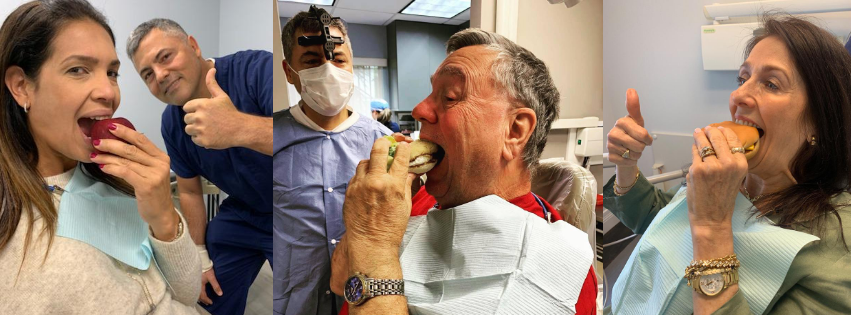TMJ symptoms can be taxing, even disruptive to your everyday life! I know it sounds scary, but trust me, I’ve seen patients in my practice with such severe TMJ symptoms what were on a liquid diet, or couldn’t even eat a burger or an apple.
Some patients think that because a night guard works for nighttime bruxism, it will also help diminish TMJ symptoms during the day.
The truth is night guards, yes, are a commonly prescribed solution for nighttime bruxism (tooth clenching or grinding); but unfortunately, many people that use night guards are dismayed to experience new or worsening pain in their temporomandibular joint (TMJ) after wearing the appliances.
The reason for that is that night guards don’t actually address the root of TMJ pain; they are merely meant to protect the teeth from wear due to chronic tooth grinding or clenching (people with TMJ disorder tend to grind or clench their teeth at night).
In many cases of TMJ disorder, the disc — the cartilage dividing the TMJ into two compartments — becomes displaced. This displacement prevents it from maintaining the normal relationship between the articular surfaces when opening and closing the jaw. Night guards do not return the disc into place; therefore, they don’t fix the underlying problem that causes symptoms.
What’s more: the design of many night guards causes the posterior teeth to touch the guard’s plastic while the anterior teeth hardly touch the guard or do not touch it at all. The unevenness of tooth contact with the night guard can lead to even more clenching, grinding and TMJ problems.
Another problem with wearing night guards is that many people buy mass-produced, “one-size-fits-all” night guards sold at Walmart or on Amazon. Mouth arches and teeth size can be so varied that it is truly impossible for one size to fit all. And, a poor-fitting guard doesn’t protect the teeth; in fact, it actually leads to greater problems like jaw pain and soreness. The ill fit of a generic night guard can throw off the alignment of the jaw.
Recurring jaw pain is usually a clue that there is a problem with the night guard’s fit. To be comfortable, patients with TMJ disorder are better off having a custom guard made, based on their specifications.
If you’d like to better understand TMJ symptoms and learn more about how treatment can help you gain your lifestyle back, please give us a call, and ask for a complimentary TMJ phone consultation. We’ll be happy to help you!


